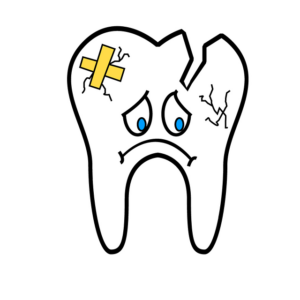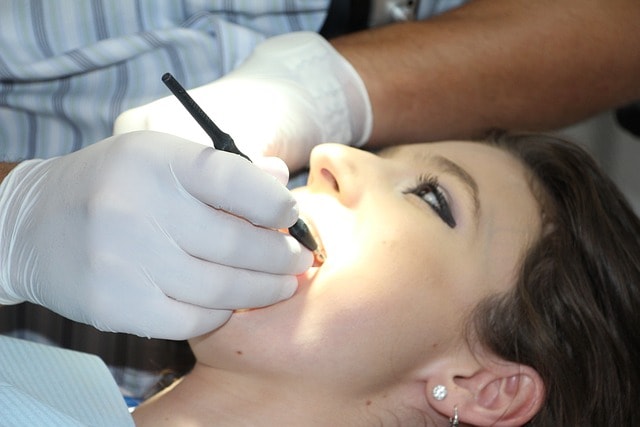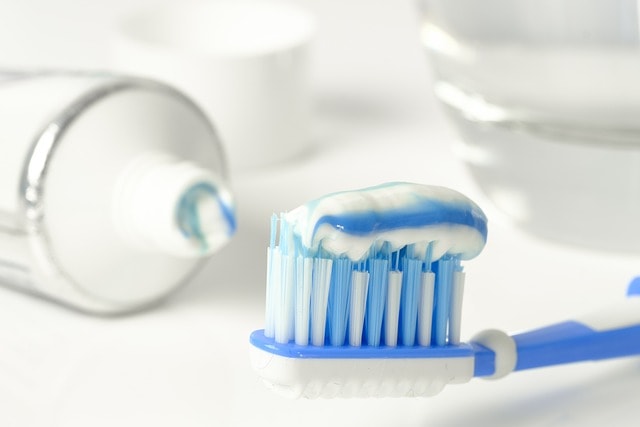Toothache pain is intense and needs quick relief. In this article, you’ll find fast remedies and learn about common causes and treatments.
Key Takeaways
- Toothache can arise from various issues including cavities, infections, and gum disease, necessitating prompt treatment to prevent escalation.
- Common symptoms of toothache include sharp pain, dull ache, and sensitivity to temperature changes, with early recognition being crucial for effective intervention.
- Home remedies like cold compresses, clove oil, and salt water rinses can provide temporary relief for tooth pain, but professional dental care is essential for underlying issues.
Understanding Toothache Pain
Toothache is defined as pain in and around the teeth and jaws. This jaw pain can be particularly troublesome, often feeling more severe than other types of pain due to its connection to the sensitive nerve endings in the head. The intensity of toothache pain, general pain, and nerve pain can vary, sometimes becoming increasingly severe and persistent if it recurs. Addressing toothache pain promptly helps relieve discomfort and treat the underlying cause quickly.
Various conditions can lead to tooth pain, including:
- Cracked teeth
- Bruxism
- Cavities
- Inflammation in the gums, which can signal potentially serious issues requiring attention
- Infection that has spread to the tooth’s pulp, necessitating immediate dental intervention
- Temporary irritation from foreign objects lodged in the gums
Toothache pain often feels worse at night due to increased blood vessels flow and focus on the discomfort, along with irritating foods consumed at dinner. Maintaining good oral health and seeking early treatment can prevent more severe conditions, especially when the head elevated position is used to alleviate some pains.
Common Symptoms of Toothache
Recognizing toothache symptoms helps determine the severity and cause of the pain. Different types of tooth pain can point to various issues:
- Sharp and jabbing pain might suggest cavities or a cracked tooth.
- Dull ache could indicate an infected tooth or bruxism.
- Sensitivity to hot or cold temperatures often points to issues like cavities or gum disease.
Other symptoms accompanying a toothache may include tooth sensitivity, bleeding gums, and swelling in the gums or around the jaw. In children, symptoms might include fever and fatigue. Early recognition ensures timely dental intervention, preventing minor issues from escalating.
Causes of Toothache
Knowing the causes of toothache aids in effective treatment and prevention. Toothaches can result from issues like cavities, infections, and gum disease. Cavities and abscessed teeth are common reasons for toothache that usually require professional intervention. Signs of advanced cavities include swelling, pain during chewing, and persistent toothache.
Throbbing pain in a tooth often points to an infection affecting the tooth pulp, which can lead to more severe issues if left untreated. Different types of tooth pain and their possible causes include:
- Swelling in the gums or around the jaw can accompany tooth pain and may indicate a more serious condition.
- Sharp and jabbing tooth pain can suggest the presence of cavities or a cracked tooth.
- A dull and persistent toothache may indicate an infected tooth or grinding habits.
Tooth sensitivity to hot or cold temperatures might reveal underlying issues like cavities or gum disease. Toothaches that persist for more than a day typically indicate a cavity or infection. Neglecting a toothache can lead to serious issues, including weakened tooth structure and potential extraction. Sensitive teeth prompt attention can save you from more extensive dental procedures.
Home Remedies for Temporary Relief
When dealing with toothache pain, home remedies for treating toothache can provide temporary relief until you can see a dentist. Cold compresses, clove oil, and salt water rinses are popular methods that can help manage the pain. These remedies are easy to use and can be effective in reducing discomfort and inflammation.
A cold compress reduces inflammation and numbs toothache pain. Clove oil, with its antiseptic properties, can also numb pain when applied to the affected area.
Additionally, a salt water rinse can not only relieve pain but also disinfect the mouth, promoting overall oral health.
Cold Compress
Using a cold compress can help reduce swelling, inflammation, and temporarily alleviate pain associated with toothaches. To apply an ice pack for toothache relief:
- Wrap the ice pack in a clean towel.
- Hold it against your jaw.
- Repeat this method for 10 minutes every hour, or for shorter periods if it feels too cold.
Applying ice packs helps reduce inflammation and pain.
Using cold compresses offers quick and effective pain relief while awaiting professional dental care. This simple remedy can significantly alleviate severe toothache pain.
Clove Oil
Clove oil serves as a natural remedy that alleviates pain and reduces swelling in affected areas. Its antifungal and antiseptic properties make it an effective solution for toothache relief.
Apply a small amount of clove oil to a cotton ball and place it on the painful tooth. This can quickly relieve pain and manage inflammation until you see a dentist.
Salt Water Rinse
A salt water rinse made with warm water and half a teaspoon of salt can relieve toothache pain. Mix 1/2 teaspoon of salt into 8 ounces of warm water for this remedy.
This rinse relieves pain and disinfects the mouth with a natural disinfectant, supporting overall oral care. This simple and effective home remedy offers temporary relief.
Over-the-Counter Medications
Over-the-counter medications offer temporary relief for toothache pain. Ibuprofen is effective for reducing inflammation and providing lasting relief, while paracetamol is another commonly used option.
Over-the-counter liquid pain medications can ease a child’s toothache before a dental visit. Follow dosing and application instructions to ensure safety and effectiveness with over the counter medication.
When to See a Dentist
The severity and duration of a toothache depend on its cause; some resolve quickly, while others persist. Visit a dentist if pain lasts longer than one or two days. Professional dental care is crucial, as untreated pain and its cause can worsen.
Unbearable pain indicates the need for emergency dental care. A dentist may require your medical history and details about the pain to diagnose the sore tooth effectively. Prompt dental intervention can prevent severe issues, including a serious infection, and ensure optimal oral health. If you experience persistent discomfort, it’s essential to see your dentist.
Toothache in Children
Toothache in children can be challenging as they may not articulate their pain clearly. Schedule a dental appointment promptly if your child experiences a toothache. Symptoms may include fever and fatigue.
Liquid pain relief medication can ease a child’s toothache before a dental visit. Teething pain in toddlers, caused by erupting baby teeth, can also lead to discomfort. Addressing these issues promptly ensures oral health and prevents severe problems.
Toothache During Pregnancy
Hormonal changes and other physical changes during pregnancy can increase the risk of tooth pain due to an elevated risk of tooth decay and gum disease. Morning sickness can contribute to toothache as the acid in vomit may remain on teeth, leading to potential damage and discomfort.
After vomiting during pregnancy, it is recommended to rinse your mouth and wait at least 30 minutes before brushing to protect your teeth. Staying aware of oral health during pregnancy is crucial because increased susceptibility to infections may impact the health of the child.
Good dental practices during pregnancy can prevent toothaches and maintain overall health through proper dental treatment.
Preventing Toothaches
Preventing toothaches begins with maintaining good oral hygiene. Brushing twice a day and flossing once daily help prevent toothaches. Regular check-ups with a dentist detect issues early.
Diet plays a significant role in preventing toothaches. Consider the following tips:
- Avoid sugary foods and carbonated drinks.
- Stay hydrated to help clean the mouth.
- Incorporate fiber-rich fruits and vegetables into your diet.
- Rinse with water or chew sugar-free gum to neutralize exposure to acidic food after eating. Additionally, it’s important to eat soft foods when necessary to avoid further discomfort. Soft foods can help ease the pain during recovery.
Regular brushing, flossing, and tongue cleaning can reduce the risk of toothaches in children. Following these preventive measures helps maintain optimal oral health and avoid tooth pain.
Summary
Toothache pain can be a significant disruption in daily life, but understanding its causes, symptoms, and treatment options can make it manageable. From identifying the types of pain and their triggers to employing home remedies and knowing when to seek professional help, this guide has covered essential aspects of dealing with toothache.
Maintaining good oral hygiene practices, addressing pain promptly, and seeking professional care when necessary can prevent toothaches and promote overall oral health. Remember, proactive dental care and regular check-ups are key to avoiding the discomfort and complications associated with toothache pain.
Frequently Asked Questions
What are the common symptoms of a toothache?
Common symptoms of a toothache include varying degrees of tooth pain—sharp, dull, or throbbing—sensitivity to temperature, swelling, and bleeding in the gums. Recognizing these symptoms can prompt timely dental care.
What causes toothaches?
Toothaches are primarily caused by cavities, infections, gum disease, cracked teeth, and bruxism. Addressing these issues promptly with dental care can prevent further discomfort.
How can I relieve toothache pain at home?
To relieve toothache pain at home, consider using cold compresses, clove oil, or salt water rinses for temporary relief. These remedies can help alleviate discomfort until you can see a dentist.
When should I see a dentist for a toothache?
You should see a dentist for a toothache if the pain lasts more than one or two days or if it becomes unbearable. Prompt attention can help prevent further complications.
How can I prevent toothaches?
To effectively prevent toothaches, practice good oral hygiene by brushing and flossing daily, limit sugary foods, and schedule regular dental check-ups. Taking these steps can significantly reduce your risk of discomfort.





